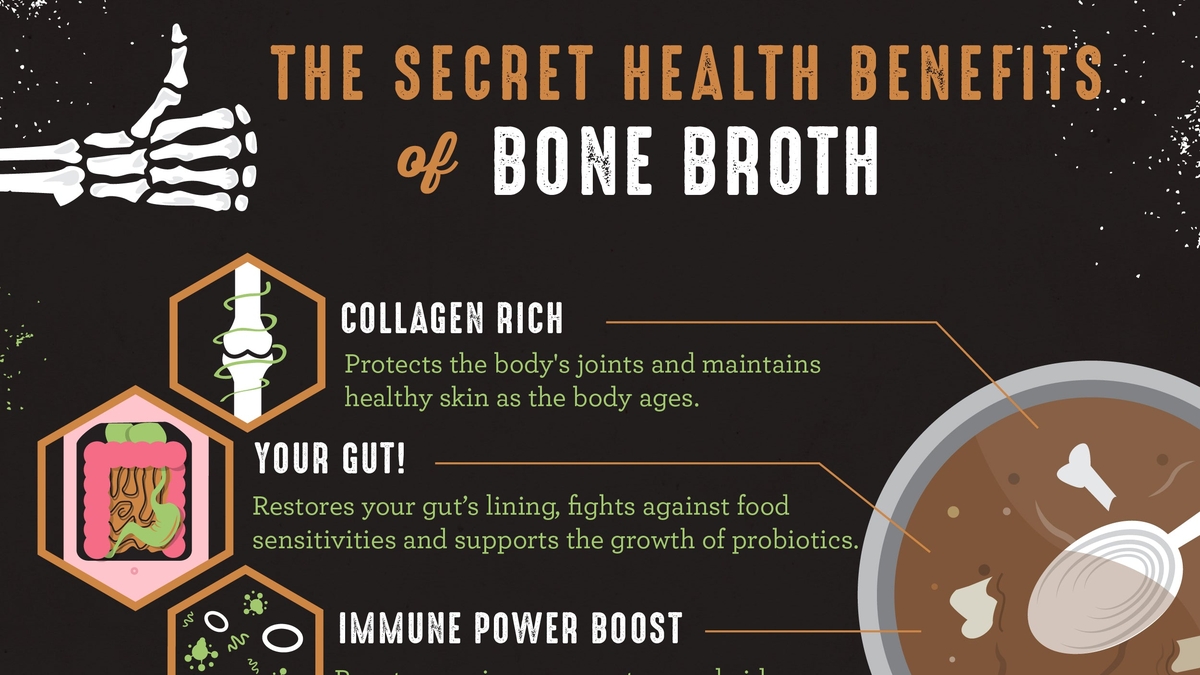
There’s no denying that bone broth has been making waves in the health and wellness community. This nutritious liquid, made by simmering animal bones and connective tissues, has been hailed as a superfood, rich in minerals, collagen, and amino acids. With potential health benefits spanning from improved joint health and gut function to immune system support and weight management, it’s no wonder that bone broth has been consumed for thousands of years and is now a staple in many modern diets. However, as dietitian Lindsey Wohlford points out, there’s a need for more research to substantiate these claimed health benefits.
The Nutritional Profile of Bone Broth
Bone broth is made by simmering animal bones, connective tissues, herbs, and vegetables for an extended period. This long cooking process allows for the extraction of high amounts of nutrients and minerals. The result is a broth rich in collagen, gelatin, and a host of essential amino acids. It also contains minerals like calcium, phosphorus, magnesium, and potassium, along with compounds like glucosamine and chondroitin. The presence of these nutrients is associated with a range of health benefits, making bone broth a versatile addition to the diet.
Claimed Health Benefits of Bone Broth
Bone broth is associated with numerous health benefits. For instance, the rich collagen content is known to enhance skin vitality and promote healthy aging. The amino acids present can support the immune system and aid in detoxification. Additionally, the gelatin in the broth can improve gut health and offer anti-inflammatory properties. Consuming bone broth may also help increase bone density, strengthen joints, support muscle protein synthesis, and even promote restful sleep. Yet, it’s crucial to note that while these health benefits are promising, further research is necessary to solidify these claims.
The Bone Broth Diet
The bone broth diet is a 21-day weight loss plan that combines a low-carb Paleo diet with intermittent fasting, claiming to help lose up to 15 pounds, 4 inches, and wrinkles in just 21 days. This diet utilizes the rich collagen and amino acid content of bone broth to promote joint health and lean muscle mass. However, it’s not without its downsides. The diet can be restrictive and may lack essential nutrients. It may also trigger digestive problems and is not suitable for everyone, especially those with certain medical conditions or taking specific medications. Therefore, it’s recommended to consult with healthcare professionals before making significant dietary modifications.
Is Bone Broth Worth the Hype?
Bone broth is undeniably nutrient-rich, and its potential health benefits make it a compelling addition to many diets. However, as dietitian Lindsey Wohlford emphasizes, more research is needed to validate these claims fully. While it’s true that bone broth can be a beneficial part of a balanced diet, it’s essential to approach it with a balanced perspective and not view it as a cure-all solution. As always, consulting a healthcare professional before making significant dietary changes is crucial.
